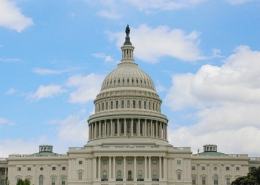While the House’s transportation appropriations bill for fiscal year 2024 features sweeping cuts to many USDOT grant programs, it largely exempts the Federal Aviation Administration from financial pain and suffering.
Total funding provided to the FAA from all sources (including the Infrastructure Investment and Jobs Act) would total $24.55 billion under the House bill, just $255 million (-1.0%) below the budget request and $529 million (+2.2%) above last year.
When it comes to day-to-day operations, the House bill gives the Operations account a hefty 6.8 percent funding increase over last year (+$815 million), meeting the Biden Administration’s budget request almost precisely. The bill meets the request for air traffic control operations ($9.44 billion) and for aviation safety ($1.75 billion) exactly dollar-for-dollar. The only differences in the rest of the Operations account are a 15 percent (-4.8 percent) cut in “Staff offices” and a $5 million (+11.9%) increase in commercial space transportation.
On the internal capital side, the House bill funds the Facilities and Equipment account to a level ($3.97 billion, including IIJA advance) that is $28 million above last year but is $489 million (-11.0%) below the budget request. The big items of difference are the rejection of a request for a new $115 million NextGen acceleration program and a $367 million cut in the request for regular appropriations for the Air Traffic Control F&E activity, which the House bill instead freezes at the 2023 level of $1.76 billion.
Within the Research, Engineering, and Development budget, the changes are mostly political. The House bill zeroes out funding for the “Alternative aircraft technology and sustainable fuels” and “Environment and energy” line items in the RE&D budget, shaving $103 million from the budget request, while adding an extra $10 million to the request for UAS research and a total $34 million extra for everything else, collectively, in the account.
For airport grants, the House bill provides the same $3.350 billion obligation on the AIP program that has been practice for well over a decade (assuming that a full-year extension of the contract authority for that program will be forthcoming). Beyond that, this year’s House bill does not provide any extra funding for the base AIP program ($272 million was provided in both 2022 and 2023). But the Administration had proposed to get rid of that funding as well, so total funding for AIP grants from all sources (contract authority, regular appropriations, and IIJA advance) would be $6.04 billion in 2024 under the House bill, compared to $6.05 billion under the budget request and $6.34 billion last year.
The House bill does provide $304 million for what the bill summary says are 89 earmarked projects requested by 78 House members.
Finally, the bill does not touch the $1 billion provided by the IIJA for the new Airport Terminal Program.















